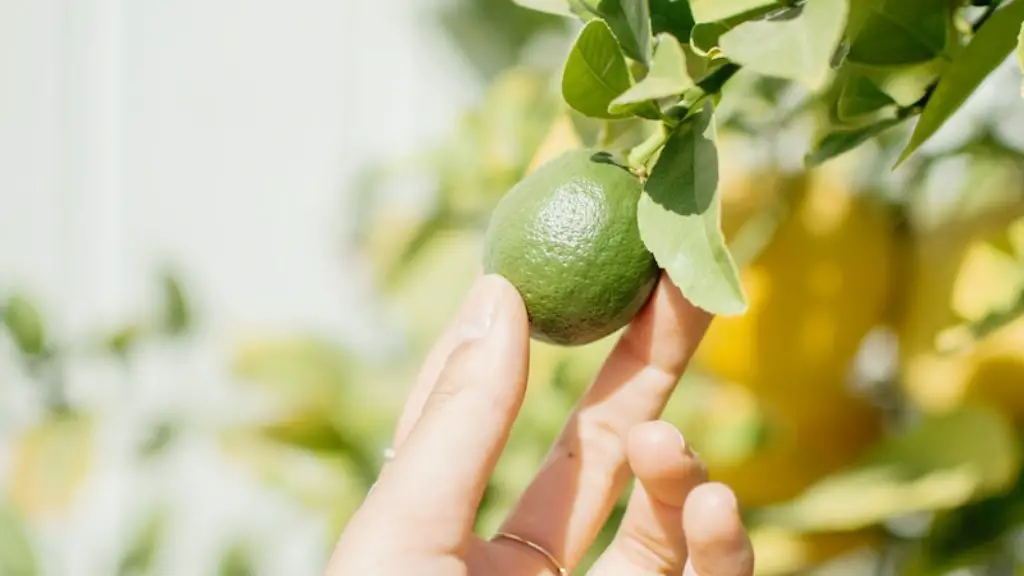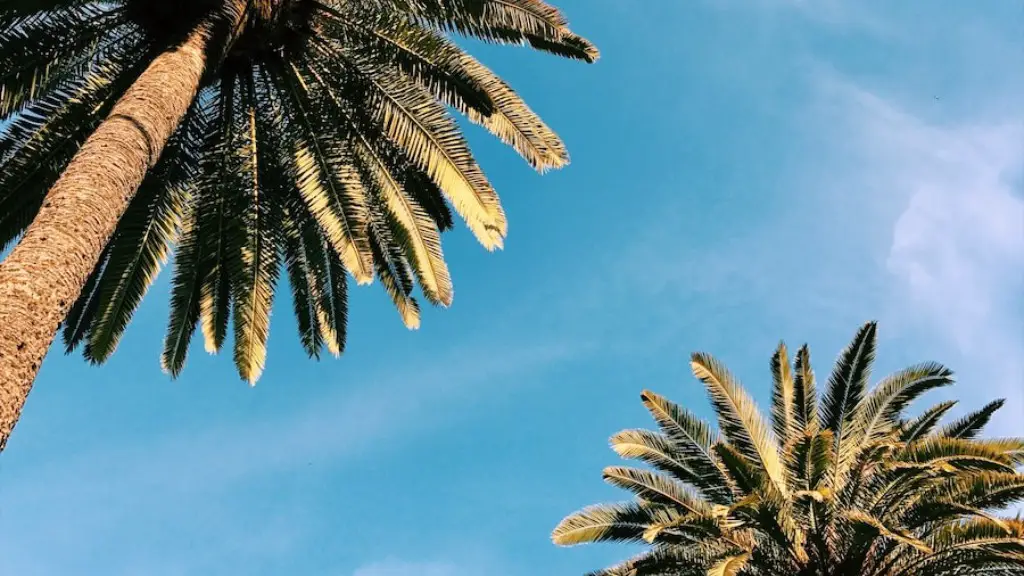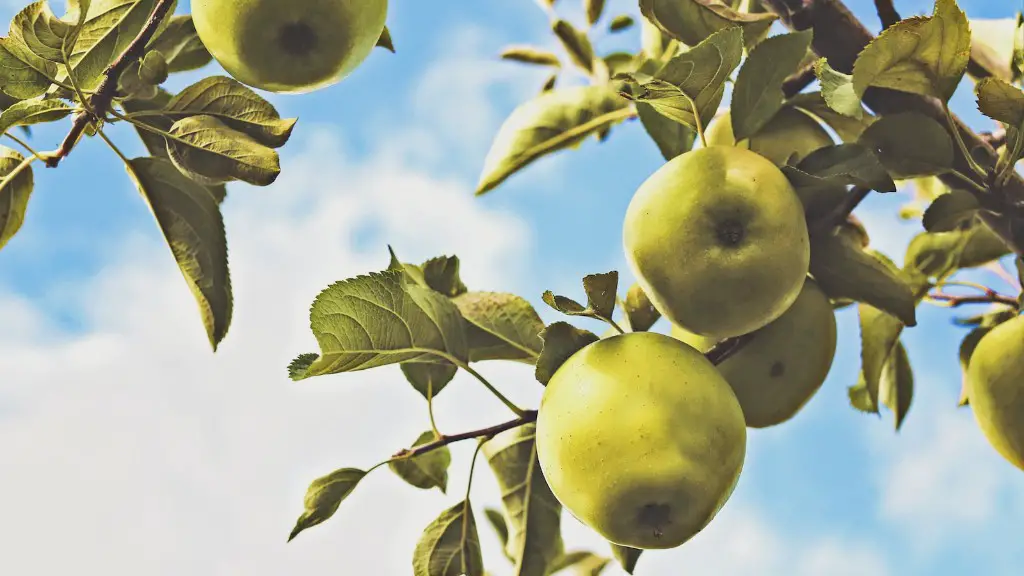Growing lemon and lime trees in your garden or on your balcony is not only possible, it’s easier than you think. With the right climate and soil conditions, you can get yourself a vibrant and healthy lemon and lime tree. You don’t need to be an expert gardener or live in an ideal climate to get one – all you need is a bit of know-how.
Given the right location such as a spot in the garden or a balcony space that gets plenty of sun, lemon and lime trees don’t take up too much space. What’s more, they are easy to maintain. Make sure to give them a good amount of space otherwise they won’t grow properly. Water them regularly and don’t let the soil go too dry. If they get too much sun, use a shade cloth to protect them.
When it comes to soil, they need fertile, well-draining soil. A soil pH of 6.5 to 7.5 is perfect. If you’re not sure if the soil in your garden is right for them, you can test it with a soil pH meter or pH testing kit. If the pH is too low, you can add lime or dolomite to boost it.
When you’re ready to choose your tree, you’ve two main choices – one is a mature tree, the other is a seedling. Mature trees are much easier to care for, as they’ve already established themselves and will produce fruit more quickly. On the other hand, with a seedling, you get the satisfaction of watching it grow and harvest your own lemons and limes.
These trees are fairly resilient and fairly fast-growing. You can expect your first harvest to start within 3-4 years. Then, you can enjoy delicious lemons and limes from your own tree!
Climate Conditions
The most important factor when it comes to growing lemon and lime trees is the climate. It needs to be mild and warm. If you live in a tropical region, then you’re in luck – you can get a variety of lemon and lime trees. However, if you live in a temperate climate like the UK, you’re best off sticking with lemons and limes that don’t need much heat to grow.
Varieties such as Meyer lemons, Key limes and Bearss limes are all ideal for cooler climates. Of course, if you have a sheltered spot in the garden or a warm balcony, you can grow some heat-loving varieties as well. Make sure to keep an eye on the forecast and bring your trees indoors during cold weather.
It’s also important to remember that while lemon and lime trees love lots of sun, they don’t like direct sunlight. You’re better off finding them a spot in the garden that gets partial shade during the hot part of the day. That way, the leaves don’t get scorched by the sun.
Fertilization & Pruning
To ensure your lemon and lime tree stay healthy and vigorous, it’s important to give it regular fertilization and to prune it when necessary. Choose a good quality fertilizer specifically designed for citrus trees and follow the instructions on the packet. Pruning should occur in late winter and it’s done to get rid of any dead, diseased or broken branches.
If it’s the first time you’ve pruned your tree, seek advice from an expert to find out how to do it properly. Pruning helps the tree to stay healthy, stimulates new growth and encourages your tree to produce lots of lemons and limes. You can also use pruning to control the size and shape of your lemon and lime tree.
Pest & Diseases
It’s important to be on the lookout for pests and diseases on your lemon and lime trees. Common pests include aphids and scale, which can suck the sap out of the leaves and branches, leaving your tree weak and defenseless. To deter these pests, make sure to keep the area around your tree clean and don’t use chemical pesticides.
As for diseases, the biggest problem is bacterial canker, which can cause unsightly lesions on the trunk of your tree. To prevent this, keep an eye on the weather conditions and make sure the roots of your tree are well drained. If you spot any lesions on the trunk, contact your local gardening expert for advice.
Harvest & Preservation
Finally, when your tree is producing lots of lemons and limes, you can get the most out of your harvest by preserving them. You can freeze sliced lemons or limes and also make your own lemon and lime juice or cordial to enjoy throughout the year. If you’ve picked too many, you can always give some away to family and friends.
Lemons and limes are also a great addition to a variety of different dishes, so you can get creative in the kitchen with them. Just remember to keep an eye out for pests, diseases and other problems that can affect your tree and your harvest.
Using in Other Households
Having your own lemon and lime tree is incredibly useful, as you can use the fruit in so many different ways. For example, you can use it to make delicious drinks like homemade lemonade and limeade. Or you can use it to add zesty flavor to salads, stir-fries, desserts and more! The juice and zest of the fruit can also be used for cleaning, to make your own household cleaners or infuse the atmosphere with lovely smells.
Lemons and limes are also a great natural source of Vitamin C and other essential vitamins and minerals, so make sure to get a few each day! And if you have any leftover lemons or limes, you can make your own DIY treatments, such as a soothing face mask or a hair strengthening mask.
Conclusion
As you can see, there’s a great deal of benefits to having your own lemon and lime tree. It not only looks great in your garden or on your balcony, it brings a lot of flavor to your food and drinks and is a natural source of essential vitamins and minerals. As long as you give it the right conditions and look after it, your lemon and lime tree should last for many years.



